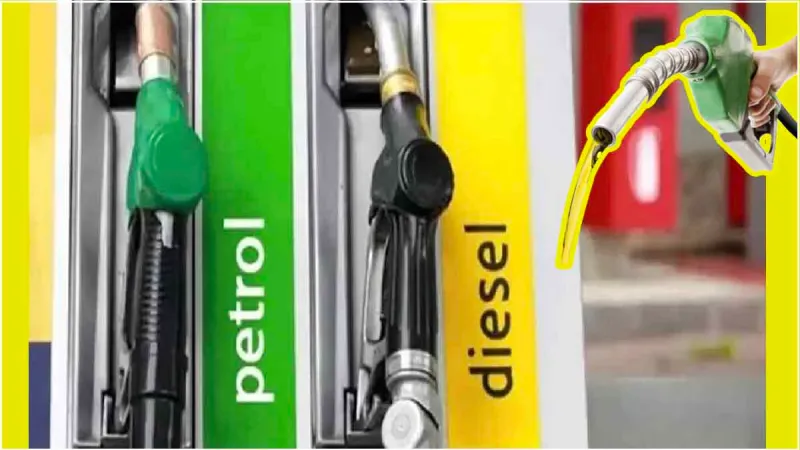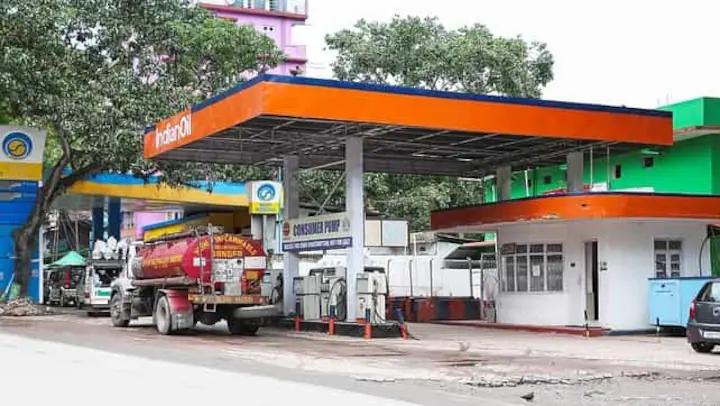
Petrol and Diesel Prices in Gujarat
Petrol and Diesel Prices in Gujarat : Fuel prices are a significant concern for consumers, businesses, and policymakers alike. In Gujarat, recent fluctuations in petrol and diesel prices have garnered attention, prompting discussions on the factors influencing these changes and their implications for various stakeholders. This comprehensive analysis delves into the latest city-wise fuel rates in Gujarat, examines the trends over recent months, and explores the underlying causes and potential impacts of these price movements.
Current Fuel Prices in Gujarat (As of June 5, 2025)
Petrol Prices
As per the latest data,Petrol and Diesel Prices in Gujarat the average petrol price in Gujarat stands at ruppes 95.05 per litre. However, prices vary across different cities due to factors such as transportation costs and local taxes. For instance
- Ahmedabad: 95.00
- Surat: 94.75
- Rajkot: 94.24
- Vadodara: 94.11
- Gandhinagar: 94.97
Diesel Prices
The average diesel price in Gujarat is approximately 90.74 per litre. City-wise variations include
- Ahmedabad: 90.67
- Surat: 90.44
- Rajkot: 89.94
- Vadodara: 89.78
- Gandhinagar: 90.65

Recent Trends in Fuel Prices
Over the past few months, Gujarat has witnessed minor fluctuations in fuel prices. For example, in May 2025, petrol prices ranged between 94.86 and 95.10 per litre, while diesel prices fluctuated between 90.54 and 90.78 per litre. These changes are influenced by various factors, including global crude oil prices, currency exchange rates, and domestic tax policies.
Factors Influencing Fuel Price Changes
Several elements contribute to the dynamic nature of fuel pricing in Gujarat:
1. Global Crude Oil Prices
International crude oil prices play a pivotal role in determining domestic fuel rates. Fluctuations in global supply and demand, geopolitical tensions, and decisions by oil-producing nations can lead to significant changes in crude oil prices, subsequently affecting petrol and diesel rates in India.
2. Currency Exchange Rates
The value of the Indian Rupee against the US Dollar impacts the cost of importing crude oil. A weaker rupee makes imports more expensive, leading to higher fuel prices domestically.
3. Taxation Policies
Central and state governments levy excise duties and value-added taxes (VAT) on fuel. Any revisions in these tax rates directly influence the retail prices of petrol and diesel. For instance, Gujarat’s state government charges an excise duty of 13.70% on petrol.

4. Transportation and Logistics Costs
The cost of transporting fuel from refineries to different cities affects local fuel prices. Cities closer to refineries or ports may have slightly lower prices compared to those located farther away.
Implications of Petrol and Diesel Prices in Gujarat Fluctuations
Economic Impact
Changes in fuel prices can influence inflation rates, as transportation costs affect the prices of goods and services. Higher fuel prices can lead to increased costs for businesses, which may be passed on to consumers.
Consumer Behavior
Rising fuel prices often prompt consumers to seek more fuel-efficient vehicles or alternative modes of transportation. Conversely, declining prices may encourage increased vehicle usage.
Government Revenue
Fuel taxes constitute a significant source of revenue for both central and state governments. Fluctuations in fuel consumption, driven by price changes, can impact tax collections.
Strategies for Consumers to Mitigate Fuel Costs
- Opt for Fuel-Efficient Vehicles: Choosing vehicles with better mileage can reduce fuel expenses over time.
- Regular Vehicle Maintenance: Ensuring that vehicles are well-maintained can improve fuel efficiency.
- Plan Trips Efficiently: Combining errands and choosing optimal routes can minimize fuel consumption.
- Use Public Transportation: Utilizing buses, trains, or carpooling can significantly cut down individual fuel usage.
- Stay Informed: Keeping track of fuel price trends can help in planning refueling times to take advantage of lower prices.

Conclusion
Petrol and Diesel Prices in Gujarat as in the rest of India, are subject to a complex interplay of global and domestic factors. While recent trends show minor fluctuations, staying informed and adopting fuel-efficient practices can help consumers navigate these changes effectively. As the global energy landscape evolves, continuous monitoring and adaptive strategies will be essential for both policymakers and consumers.



